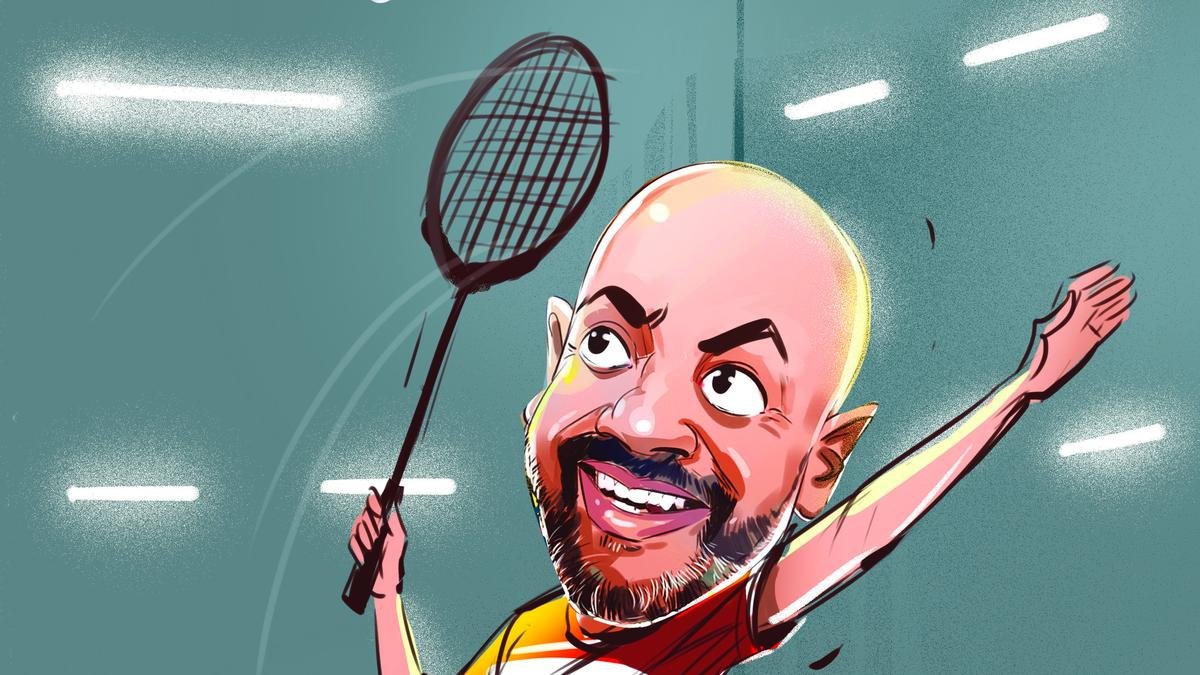I did the unthinkable two weeks ago: I chose to spend a four-day weekend in Sri City. I did the unthinkable two weeks ago: I chose to spend a four-day weekend in Sri City.
My reasons were simple. The weekend before, I was in Chennai to attend the opening of a colleague’s exhibition. 50/50 at the Alliance Française by Kaveri Bharath was spectacular, but where there’s Chennai for a certain Sri City dweller, there’s bound to be a food-and-drink rampage. The week before that, I was in London. Of course, I overdid things there, too. The idea of committing to nothing around Sri City and ingesting only protein, therefore, felt right.
But a four-day weekend in this metropolis stretches and stretches and stretches. I finished reading Arundhati Roy’s Mother Mary Comes to Me. I nearly re-read it. I put away suitcases from my London trip and also from the trip before that. (I am that cute nightmare who takes weeks—nay, months—to completely unpack). I walked around the neighbourhood park, where an obstinacy of buffalo had been unleashed to graze. That is how we mow our grass around here. The next day, it would be a herd of goats—charming, yes, but contemplating them wouldn’t sort out my never-ending weekend.
I even considered attending Krea University’s flag-hoisting ceremony on Independence Day but decided it wasn’t worth rousing myself at the crack of dawn. When time continued to stand still, much like the August air in these parts, I caved.
A bunch of professors had formed a badminton gang. The objective, they said, was to get moving. I’d join them.
The last time I seriously played the game was as an eleven-year-old at Church Road, Gangtok. The pastor was our closest neighbour, and The Church of North India grounds were our fiefdom. That’s where we showed off our developing backhand skills every day of the winter break. Mornings were for rallies, afternoons for singles, and evenings, when the adults got off work, for doubles. Pastor Uncle always wanted to team up with my sister because her smashes were ruthless. I’d be paired up with some older player who didn’t really want me. We’d play all evening, until it was impossible to see the shuttlecock.
But adolescence got in the way. Adulthood got in the way. The next time I’d pick up a racquet was around 30 years later at a friend’s place in New York. Muscle memory is a wondrous thing, I concluded, as I made a few clumsy serves in a Brooklyn backyard on a perfect day. I beat a seven-year-old and a ten-year-old at my first and second games— never mind that these kids had likely not seen a badminton racquet before. There would be mild aches on my shoulders the next day and the day after.
I’d repeat this performance of a champion at Krea, I thought, as I walked to the badminton courts. Rains rattled on the tin roof. Some of us warmed up with walks and jogs. Others stretched. I muttered platitudes, which I tend to do when awkward silences make their presence felt. I was confident I wouldn’t be the lousiest player.
I was wrong.
First, there were rules. I had no memory of the technical stuff. Did we even follow the serving procedures when we played as children? The odd-even shenanigans continued to confound me. But I wouldn’t let that get in the way. Using all the strength I could muster, I hit a smash with a guttural sound. It was laughably weak. I’d yell scores at the top of my voice and declare victory long before the set was up. My aggression—or at least the noises I grunted to convey my triumphs and near misses— was inversely proportional to my skill. I was afraid I was slowing the game down, but that consideration was short-lived. The endorphins oozed out as beautifully—as disgustingly—as the sweat; you could see my elation. I, too, would have hated to play with me.
A player took it upon herself to school me. She said I was endowing my returns with more height than length. She had a point. Others had suggestions, too. My shots were predictable, someone said. I stayed put at one spot for the better part of the game, a serious player said. I was—get this one—holding the racquet completely wrong, a heartless professor chastised. I let the shuttle drop way too low before I hit it. A wise soul told me I often lost sight of the shuttle. Once I started meticulously watching it, I improved a bit. The aim was not to be the most awful player in the room. At this rate, I’d get there in three years.
I returned to the courts the next day. I played four days the following week. A professor and I teamed up against a pair of students. We won a set and lost three, but our losses were dignified (18, 17 and 19 against their 21). Long weekends in Sri City have suddenly become purposeful. One of these days I’ll teach the younglings how it’s done.
Prajwal Parajuly is a novelist. Karma and Lola, his new book, is forthcoming in 2026. He teaches creative writing at Krea University and oscillates between New York City and Sri City.
Published – September 03, 2025 05:09 pm IST
